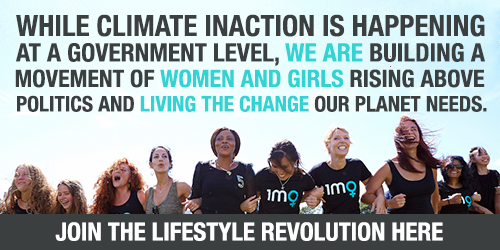Climate change is a complicated issue and often the language surrounding it is too. This can make it hard to wrap our heads around the issue. Sometimes an important message or discovery can even get lost in all the technical talk and abstract concepts.
To cut through all the lingo and ambiguous terms we've broken down a few of the words we often come across when reading about climate change and explained them in the simplest way we could manage.
Carbon Sequestration
This describes the capture and long-term storage of carbon dioxide (CO2). Since CO2 is a greenhouse gas that traps heat in the Earth's atmosphere, the capture and storage of it is a good thing. When something sequesters carbon, it removes it from the atmosphere. Think about trees - they absorb CO2 and store it in their leaves,stems, trunks and roots. This is carbon sequestration, and trees aren't the only ones who can do it! Seaweed, the ocean and even whales also sequester carbon.
Carbon Sink
Carbon sinks are reservoirs which capture carbon dioxide in the atmosphere and store it. Oceans and forests are natural carbon sinks, but carbon sinks can also be artificial. Sequestration - as defined above - describes the process through which carbon sinks remove CO2 from the atmosphere.
Climate
You might be rolling your eyes at this one, but it's important to understand exactly what climate means when talking about climate change. Climate refers to long-term weather patterns in a specific area, measured over 30 years or more. Climate includes a lot of different elements within weather, including rain, temperature, humidity, fogginess, cloud cover and so on. For a quick lesson in the difference between climate and weather check out the video below - it's made for kids but NASA know their stuff and do a great job of describing the difference between weather and climate.
Climate Justice
Climate justice is all about protecting those most vulnerable to the impacts of climate change, and sharing those impacts equitably and fairly. Climate justice acknowledges the ethical and political challenges that arise from climate change, and the fact that communities who have contributed least to climate change, are those who suffer most from its consequences.Richer people and / or countries are responsible for the majority of greenhouse gas emissions, and the concept of climate justice recognises that economic models in these countries need to change to combat climate change.
Decarbonisation
Decarbonise means to remove carbon from, so decarbonisation is the process of doing this. We often hear this term when it comes to the decarbonisation of the economy, or the transport sector. In these cases, decarbonisation is referring to removing systems and technologies which produce carbon emissions.
Drawdown
You'll probably come across this term when reading about Project Drawdown, which is a collection of 100 solutions to reverse global warming. The term drawdown is also used more broadly when talking about climate change, and describes the point in time when greenhouse gases begin to decline on a year-to-year basis (according to Project Drawdown).
Just Transition
This is a concept rooted in the environmental justice movement. To understand just transition, it's important to know what the environmental justice movement is - a response to environmental racism, which describes how communities of colour and/or low-income are disproportionately affected by the negative impacts of climate damage and environmental destruction. Just transition describes how the transition to a new, more sustainable, economic model must be just and equitable, whereby those who are vulnerable to changing economies, need to have jobs and livelihoods secured.So for example, people who are losing out in towns where coal mining is the main job people work, should be the first people to benefit from a switch to renewable energy and the resulting jobs created. Or, Indigenous communities should be given the ability to own and sell power from renewable sources, since often it's their land that solar or wind farms will be built on.
You can read here for more information.
Climate change or global warming?
These two terms are often used interchangeably but don't quite describe the same thing. Global warming describes the long-term warming of Earth, caused by greenhouse gas emissions. Climate change on the other hand, covers more bases. It also refers to rising global temperatures but goes beyond that and encompasses extreme weather events, rising sea levels, ice mass loss, shifts in flower blooming and other impacts. Climate change also describes the changing weather and climate systems, which are sometimes driven by short-term cooling.
A former NASA scientist wrote in Forbes, urging us not to get too caught up on names. Citing the Bush administration's preference for the term 'climate change' over 'global warming', as it was less alarming. The term climate change had already appeared in other scientific and political circles before this preference surfaced however, as it was seen as a more accurate way of describing the changes happening.
If you're still wanting more check out this BBC glossary, which defines a pretty exhaustive list of climate jargon.


